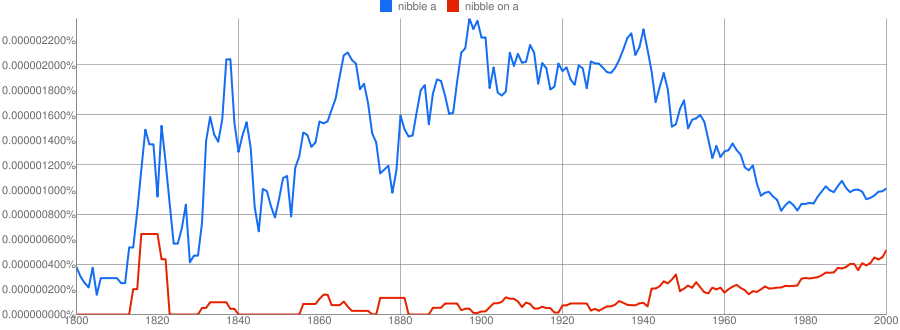I've been told by a native speaker that the verb "to nibble" can be used both with and without a preposition. So, is there a difference between
I would definitely like to nibble on one of those sweet, sweet rodents!
and
I would definitely like to nibble one of those sweet, sweet rodents!
See this question on Travel-SE for some context.
Which one (or maybe both) are correct? Is there a difference in meaning?

